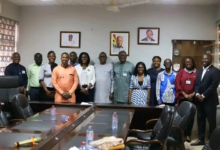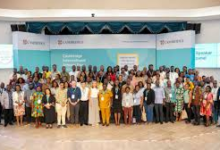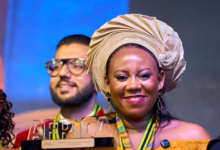Cargill provides $150,000 water systems to 10 c’nities in N/W Region
The sod was on Thursday cut at Abrabra in the Sefwi Wiawso Municipality of the Western North Region for the construction of 10 mechanised solar water systems (boreholes) for rural cocoa-growing communities at the cost of $150,000.
The beneficiary communities are Kramokrom, Punikrom, Ntrentreso, Surano, Baakokrom, Kantankrobo, Asafo, Abrabra, Nambro and Afamu.
The project being undertaken by CARGILL Ghana Limited in partnership with Safe Water Network Ghana was a fulfilment of the Cargill Cocoa Promise made to the communities since 2017 with the selection of the projects based on a Community Action Plan (CAP) development and a needs assessment done in collaboration with CARE International.
The Managing Director of Cargill, Mr Aedo Vander Weij, said in all, 6,000 people 10 communities in four cocoa-growing districts were expected to benefit from the joint water project.
According to him, the sustainability partnership project, dubbed ‘Expanding sustainable access to safe water in cocoa-growing communities in Ghana’, is aimed at enhancing access to safe water in rural farming communities, especially those focusing on cocoa cultivation.
The MD said “the project is in line with Cargill’s ‘Community Wellbeing Strategic Action Plan’ linked to the United Nations’ Sustainable Develoment Goal 6 (SDG 6) aimed at providing safe and affordable water for all by 2030.”
The Sustainability Country Lead of Cargill, Samuel Apana, said “Cargill is committed to using the power of partnership to bring transformation in the lives of our cherished cocoa farmers and their communities. This project is a necessity as it will contribute to improving the livelihood of the farmers and subsequently keep the cocoa sector alive.”
Cargill and Safe Water Network both said the initiative would provide training for community members and follow-up support for the primary objectives to be satisfied, explaining that the solar water systems would be owned by local District Assemblies and be operated and maintained by locally-trained community Water & Sanitation Management Teams (WMSTs) and operators.
They said, “In principle, the installed systems’ ongoing efficiency and clean water provision would be the responsibility of the local WSMTs and operators. The WSMTs will be able to cover the operational, repair, and other support costs of the water system with proceeds from water sales.”
Assuring the gathering of his outfit’s readiness to help improve life in rural cocoa-growing communities, the Safe Water Network Country Director, Charles Nimako, said, “We are excited about our partnership with Cargill, which is not only providing new safe water infrastructure but also investing in developing local level operating skill capability to keep it going in the long term.”
Present at the sod-cutting ceremony included the Chief of Abrabra, Nana Yaw Korankye; Regional CHED Manager, COCOBOD, Kwame Owusu Ansah, the MCE for Sefwi Wiawso Municipal Assembly, Louis Owusu Agyapong; John Enning, Assembly member for Abrabra, and the chiefs from the 10 beneficiary rural cocoa-growing communities.
FROM TIMES REPORTER, SEFWI WIAWSO




